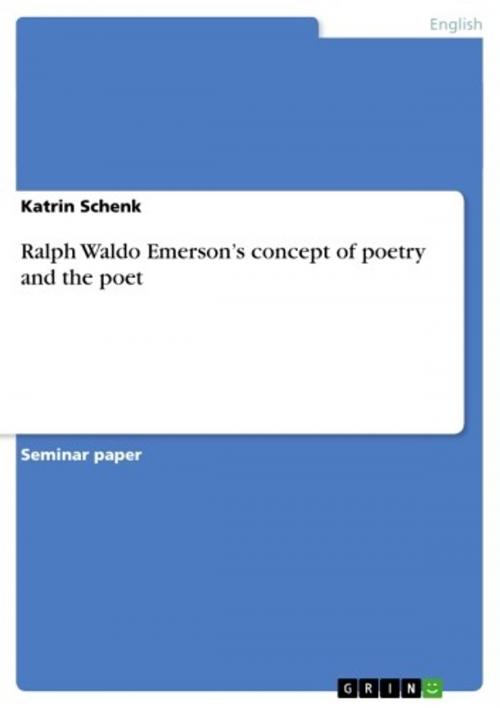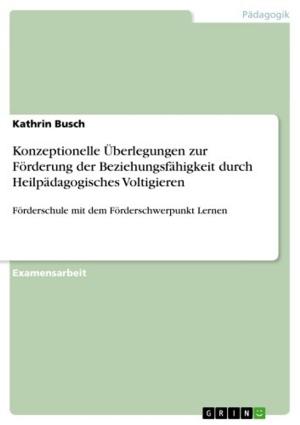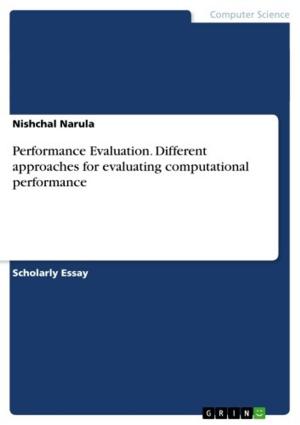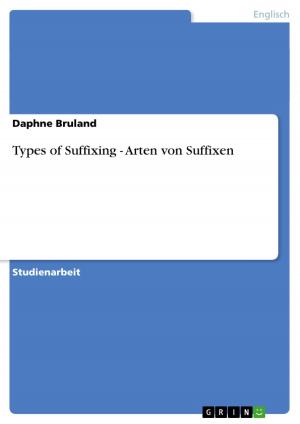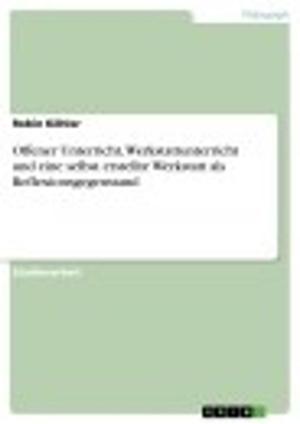| Author: | Katrin Schenk | ISBN: | 9783640180127 |
| Publisher: | GRIN Verlag | Publication: | October 6, 2008 |
| Imprint: | GRIN Verlag | Language: | English |
| Author: | Katrin Schenk |
| ISBN: | 9783640180127 |
| Publisher: | GRIN Verlag |
| Publication: | October 6, 2008 |
| Imprint: | GRIN Verlag |
| Language: | English |
Seminar paper from the year 2008 in the subject American Studies - Literature, grade: 1,3, University of Tubingen (Institut für Amerikanistik), course: Literary Transcendentalism, 15 entries in the bibliography, language: English, abstract: Ralph Waldo Emerson today is known as one of the leading figures of the American transcendentalist movement. After his studies at Harvard Divinity School he became minister at Second Church in Boston. In 1832, he decided to give up his original profession as a Unitarian Minister, when he realized that he did not agree anymore with the views of the Christian Church which proclaimed that Jesus was the only real prophet, and that revelation is something which is already over (cf. Woodlief). Emerson especially made his opinion clear concerning these views in his provocative lecture and essay 'Divinity School Address'. Instead of his religious profession as a minister, he then pursued a career as an orator, a writer, and a poet, but still then religion played an important role in his life, and religious influence can be seen throughout his writings. Emerson regarded the person of the poet as one of the most important and greatest figures among men. He refers to the poet, his abilities and his importance in many of his works like 'Nature', Representative Men and 'The American Scholar'. He even dedicated a whole essay, which is called 'The Poet', to this topic. In this essay he reflects upon the person and the importance of the poet as well as his poetry which he also considered as highly significant for men. This essay will show that Emerson's concept of the poet plays a central role in his idea of how men can gain insight into the secrets and the truths of the world and how they can regain access to the Oversoul. It will do so, by especially focusing on the works mentioned above. At first, it will look at Emerson's understanding of the terms 'poet' and 'poetry' which serves as a basis for the following exploration of the poet's functions as representative, Seer, Prophet and Namer or Language-maker. Afterwards, the poet's role in society in general and especially his importance for America, on the basis of his functions, is analyzed. In the last part, Emerson's idea of the 'perfect' poet and his value for society is described before the essay finishes with a concluding statement.
Seminar paper from the year 2008 in the subject American Studies - Literature, grade: 1,3, University of Tubingen (Institut für Amerikanistik), course: Literary Transcendentalism, 15 entries in the bibliography, language: English, abstract: Ralph Waldo Emerson today is known as one of the leading figures of the American transcendentalist movement. After his studies at Harvard Divinity School he became minister at Second Church in Boston. In 1832, he decided to give up his original profession as a Unitarian Minister, when he realized that he did not agree anymore with the views of the Christian Church which proclaimed that Jesus was the only real prophet, and that revelation is something which is already over (cf. Woodlief). Emerson especially made his opinion clear concerning these views in his provocative lecture and essay 'Divinity School Address'. Instead of his religious profession as a minister, he then pursued a career as an orator, a writer, and a poet, but still then religion played an important role in his life, and religious influence can be seen throughout his writings. Emerson regarded the person of the poet as one of the most important and greatest figures among men. He refers to the poet, his abilities and his importance in many of his works like 'Nature', Representative Men and 'The American Scholar'. He even dedicated a whole essay, which is called 'The Poet', to this topic. In this essay he reflects upon the person and the importance of the poet as well as his poetry which he also considered as highly significant for men. This essay will show that Emerson's concept of the poet plays a central role in his idea of how men can gain insight into the secrets and the truths of the world and how they can regain access to the Oversoul. It will do so, by especially focusing on the works mentioned above. At first, it will look at Emerson's understanding of the terms 'poet' and 'poetry' which serves as a basis for the following exploration of the poet's functions as representative, Seer, Prophet and Namer or Language-maker. Afterwards, the poet's role in society in general and especially his importance for America, on the basis of his functions, is analyzed. In the last part, Emerson's idea of the 'perfect' poet and his value for society is described before the essay finishes with a concluding statement.
